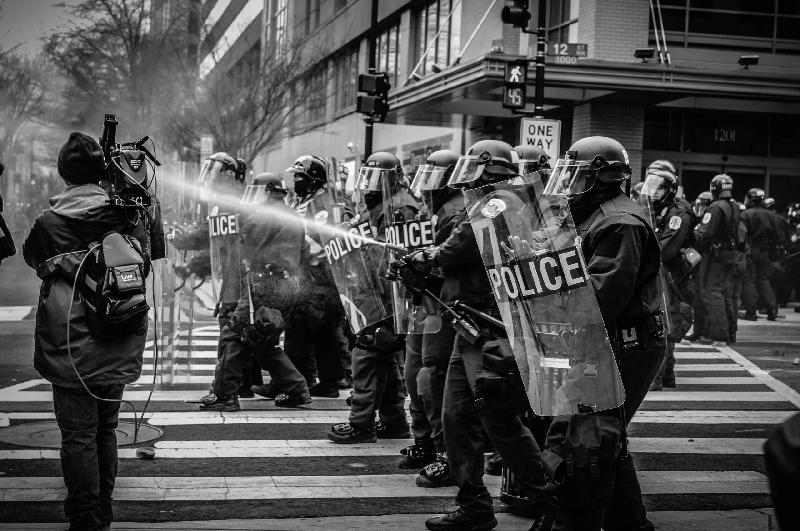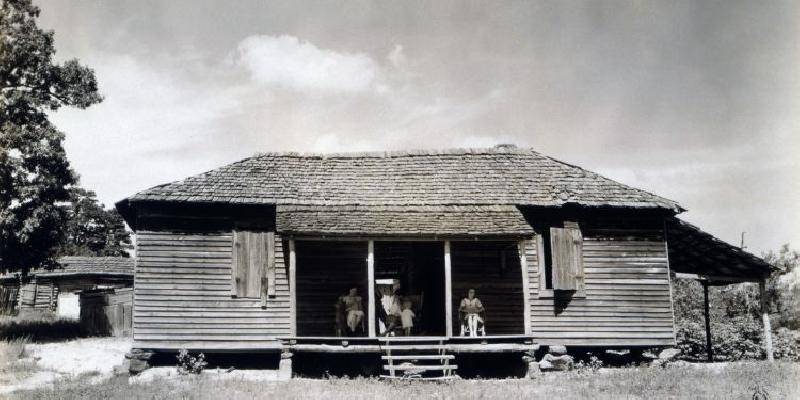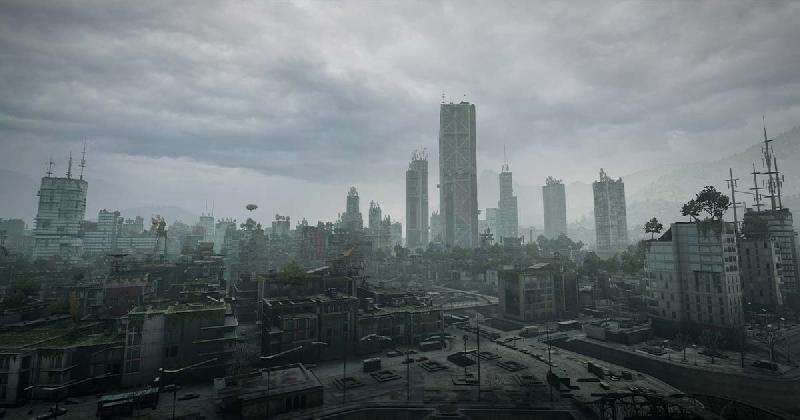It seems that the number, size, and increasing levels of violence of protests have become more common in the past several years. It’s natural for parents to worry they might have to protect themselves and their children should they be caught in these scenarios. Here, three different moms describe their own concerns and how to plan for civil unrest and keeping their families safe. These are all things that you can do as well.
It was the summer of 2016. Websites were buzzing about a wave of protests erupting across the United States, and whispers of these protests turning violent were swirling. Unlike most situations, this time we had a heads-up – news reports pinpointed locations and dates for many of these protests.
As a Survival Mom myself, this news sparked a conversation with three of my equally prepared friends, each of us with a unique situation. We knew we needed a plan, a way to navigate this potential civil unrest, because let’s face it, there was no guarantee these protests wouldn’t get out of hand.
Here’s the story of how three moms, in three very different situations, prepared for the possibility of civil unrest. The best part? Our preparations ended up being valuable for facing other emergencies too.
We were cruising along on our 4,000-mile road trip, the open highway stretching before us. It felt like the perfect summer adventure for our family. Then, news about potential civil unrest in some of our planned stops started swirling. We’d packed for car trouble, with a well-stocked vehicle emergency kit, but protests and riots? That wasn’t on the itinerary.
Our ‘Just in Case’ Mentality Pays Off
Luckily, being prepared for other situations turned out to be a big help. We’d been grabbing highway maps at rest stops along the way, and even had an old-fashioned road atlas in the car. That atlas was perfect for planning alternate routes if the GPS crapped out in some remote area, or worse, if communication networks went down completely.
Food was another area where our “just in case” mentality paid off. We’d packed extra snacks, figuring we might miss a meal stop or two. Now, that extra food could be crucial if we got stuck somewhere due to unrest, maybe needing to hunker down in a hotel for a while. Speaking of safety, we’d also taken some self-defense classes – a precaution against muggings, of course. But hey, at least it wouldn’t leave us completely helpless in a scary mob situation. The possibility of driving straight into a protest definitely crossed our minds too. We strategized on how to handle that one.
Taking Our Preparations a Step Further
But we weren’t done prepping for the unexpected. Here’s what we did next:
- Local News & Social Media: We scoured local news sites for each planned stop and kept an eye on social media trends. Hopefully, this would give us some advance warning of trouble brewing. Although, let’s be honest, sometimes you just end up in the wrong place at the wrong time and have to deal with it on the fly.
- Full Gas Tank: We decided to keep the gas tank at least half full, even if it meant more gas station stops. This way, if we needed to make a quick getaway from a bad situation, we could put some serious distance between us and the danger zone. It would also be a buffer if we hit unexpected roadblocks or used more gas than anticipated.
- Route Re-evaluation: We re-evaluated our route, opting to stay in smaller towns on the outskirts of the bigger cities we were originally planning to visit.
- Roadside Shelter Supplies: We made a pit stop at Walmart and grabbed a tarp and some bungee cords. Who knew? Maybe a roadside shelter would become our reality if hotels weren’t an option. Extra water was also added to the shopping cart. The ability to throw up a quick shelter could be the difference between spending a rough night somewhere safe and battling panicked crowds just to get to a hotel room.
- Emergency Toiletries: We snagged an extra roll of toilet paper from the hotel room (maybe we should have had one in the car already – baby wipes don’t cut it for everything!). Now, we felt like wilderness camping champions, ready for anything. Let’s face it, with kids in tow, emergency toilet supplies are a must-have.
- Home Shelter Supplies: Just in case we needed to hunker down immediately upon returning home, we caught up on laundry at the hotel and grabbed some extra groceries on the way back. You never know, right?
What I Learned
This whole experience taught me a valuable lesson: even if you can’t anticipate every single possibility, being prepared for some situations goes a long way. Flexibility is key on the road and in life. And hey, you can’t stay cooped up forever! Even as a survival mom, vacations and adventures are a must, even if they take you a little outside your comfort zone. Whatever comes your way, just roll with it and deal with it as best you can.
Home alone with the kids (Monica)
Being home alone with the kids when rumors of protests swirled through the city was nerve-wracking. My husband was stuck working 9 ½ hours away and wouldn’t be back for three days. News reports of other protests turning violent only amplified my anxiety. As a mom, the responsibility for our safety fell squarely on my shoulders.
Taking Care of Essentials
My first instinct was to focus on the practicalities of maintaining our home during a potential crisis. The clothes were piling up since the washing machine had been on the fritz, so a trip to the laundromat became priority number one. Next, I tackled the pantry and fridge, stocking up on enough basic groceries (especially perishables) to last us a week and a half. Knowing we could stay home for several days without venturing out was a huge relief.
This is key during any situation where staying home might be safer than going out. Make sure you have a stockpile of essential supplies readily available. Think about things like:
- Baby food and diapers (if applicable)
- Toilet paper
- Prescription medications
- Over-the-counter medications (pain relievers, allergy meds, etc.)
These are the types of things you can’t afford to run out of during a crisis. Stock up on them beforehand!
Communication and Escape Plans
With a full pantry and clean clothes, I called my husband. We needed to be on the same page regarding our evacuation strategy. We discussed when to stay put, when to grab the kids and pets and head to friends on the city’s outskirts, and at what point to seek refuge with our rural acquaintances. If communication became impossible, I needed him to know where to find us.
Having a plan is crucial. I mapped out several different escape routes to each of our potential destinations and made sure we had a good atlas in the car (alongside the GPS, just in case).
After a productive day of preparation, I unwound with some popcorn and Netflix. Despite the looming uncertainty, knowing I was prepared allowed me to relax and get a good night’s sleep.
What I Learned
This experience taught me a valuable lesson: I was more prepared than I thought I was. Taking the time to ensure our camping gear and emergency backpacks were organized and easily accessible made a big difference. Having a plan for different scenarios gave me the peace of mind to sleep soundly.
Date night in another city (Sarah Anne)
It’s not every day you score a successful date night out as parents. The schedules for everyone involved – spouses, kids, babysitters – have to practically align like planets. Finally, we had one such night planned, and to top it off, it coincided with a fun event in a nearby city. We were thrilled!
Then came the news – whispers of potential protests and riots. The city we were planning to visit wasn’t on the list, but the possibility of disruptions loomed large.
Monitoring the Situation
Over the next two days leading up to our date, I became a news-gathering machine. Here’s what I did to stay informed:
- Scanning News Sites: I scoured traditional news sources for any updates on potential disruptions in the city we were visiting.
- Scrolling Through Twitter: Twitter can be a valuable tool for real-time updates on local events, so I kept a close eye on any relevant hashtags or trending topics.
- Checking Craigslist: While not always the most reliable source, Craigslist can sometimes offer insights into local events and gatherings. In this case, I checked for any postings related to protests or demonstrations planned for the evening. Additional Note: While Craigslist may have been used for event discovery in the past, it’s not the most reliable source these days.
Thankfully, our event was on the far side of the city closest to us, meaning we wouldn’t have to navigate through the potentially chaotic downtown area.
Preparing a Bug-Out Bag (Just in Case)
Despite the (hopefully) low risk, we decided to be cautious and pack a “bug-out bag” with essentials:
- Hydration and Sustenance: Water and some food to keep us going in case of unexpected delays.
- Footwear for Any Terrain: Good walking shoes would be essential if we needed to ditch the car and navigate on foot for any reason.
- Communication Lifeline: Fully charged cell phones to stay connected and informed.
- Full Gas Tank: A full tank would ensure we weren’t stranded and could leave the area quickly if needed.
- Backup Navigation: An atlas in case we needed to rely on backroads due to road closures or GPS malfunctions.
We also discussed how to effectively use our concealed carry licenses, although that was a scenario neither of us relished. Taking these precautions gave us peace of mind; we could still enjoy our date night, but be prepared for anything unexpected.
What I Learned
This experience reinforced the importance of a few key things:
Including Your Babysitter in the Plan: Our babysitter’s family lives across the street from us. We made sure they knew where our designated shelter area and supplies were located, just in case. Knowing they were aware of our plan provided an extra layer of security. A babysitter version of my grab-n-go binder would be perfect.
Staying Informed with Social Media: While we relied on traditional news sources, social media platforms like Twitter (now X) can be valuable tools for staying updated on real-time events, especially during local disruptions.
Keeping a Backup Navigation System: A reliable atlas is a lifesaver, especially if GPS goes down or you find yourself in remote areas with limited connectivity.
Adaptability is Key: Anything can happen at any time. Being prepared and adaptable allows you to navigate unexpected situations with greater ease.
Key Takeaway From All Three Experiences
The key takeaway is that being prepared for common situations can be a big asset when faced with the unexpected. Here are some general tips:
- Be Resourceful: Think about the supplies you already have on hand for other emergencies (e.g., car trouble kit, first-aid kit). These can often be adapted to new situations.
- Stay Informed: Utilize multiple sources like traditional news, social media, and even local maps to stay updated on potential disruptions, especially during travel.
- Plan Multiple Routes: Having paper maps or a good atlas as backups to GPS allows you to plan alternate routes if needed.
- Prepare a Basic “Bug-Out Bag”: Pack essentials like water, food, good walking shoes, a charged phone, and a full gas tank. This equips you to handle unexpected delays or detours.
- Be Adaptable: Unexpected situations are, by definition, unpredictable. Being flexible and able to adjust your plans on the fly is crucial.
FAQ
Here’s a breakdown for each situation:
At Home: Stock up on essential supplies (food, water, medications) to minimize trips outside during unrest. Have a plan for communicating with loved ones and designate potential evacuation locations.
On the Road: The “Bug-Out Bag” becomes even more important. Consider self-defense options and prioritize staying informed about potential trouble spots along your route.
Start Small: You don’t need to overhaul your life overnight. Begin by building a basic emergency kit and keeping your car topped off with gas.
Research and Learn: There are many resources available online and in libraries about general preparedness and specific situations like civil unrest.
Practice Makes Perfect: Walk through different scenarios with your family and discuss potential solutions. This can help everyone feel more prepared and confident.
via thesurvivalmom




